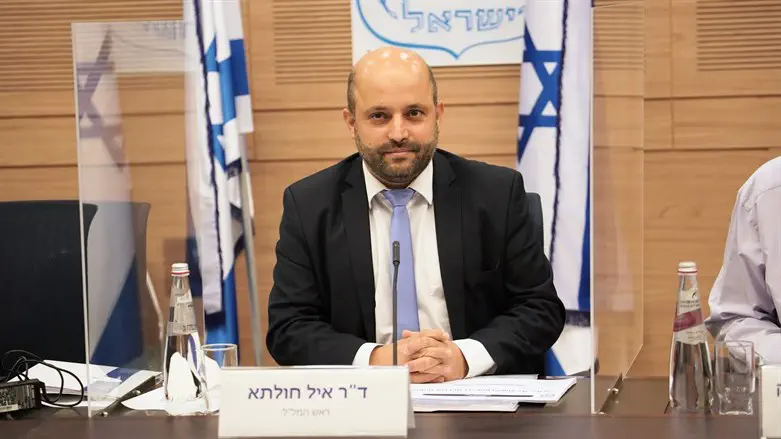
In a briefing for reporters this evening (Wednesday), National Security Council chairman Dr. Eyal Hulata, addressed to the American guarantees announced in Israel for the maritime border agreement with Lebanon and to the fact that no American official has mentioned these guarantees so far and admitted that there is currently no closed and signed document on the issue.
"The letter of guarantees is an issue that we will address after we finish drafting it with the Americans. They offered to accompany the agreement with their own guarantees that would guarantee these things. I will address it after we agree on these things with the Americans," Hulata said.
He noted that "the main benefits of the agreement are that the border line is the first territorial recognition by Lebanon and the United States and it will be deposited in the United Nations as an agreed line between the countries. This represents a security interest that has not been completed for 20 years. The agreement is also backed by an end-of-conflict document in which Lebanon announces that there is no It has additional claims on the maritime border - this is an important achievement against an enemy state."
Hulta added that "the second achievement is the creation of strategic stability that will allow us to produce gas without unnecessary security challenges and also for Lebanon, which is in a major internal crisis."
"The third element is related to Hezbollah. The organization has for many years opposed negotiations with Israel. Its joining this matter is a development of the last few months in which it supports the reaching of this agreement for various reasons - political and economic," he noted.
He also emphasized that "there is an Israeli security interest in strengthening stability within Lebanon. The stronger the Lebanese state, the lower its dependence on Hezbollah and the smaller the potential for Iranian influence."
Hulata rejected accusations that Israel gave in to all of Lebanon's demands. "Lebanon did not get 100% of what it asked for. They really wanted to get the entire Sidon reservoir while we get Karish. Lebanon eventually got the rights to their territory and we also spread over what is in our territory. They also did not accept the security zone and their lines in a way that could affect the land negotiations in the future."
Addressing the economic aspects of the deal, Hulata said: "Regarding the Sidon reservoir, the developing company will acquire Israel's rights to the reservoir and any dispute will be resolved through an American mediation mechanism. It will be impossible to start producing gas in the Sidon reservoir, without the rights being acquired from Israel and a first payment being paid to it."
The director of the Ministry of Energy, Lior Schillat, added that "Israel will negotiate the compensation it will receive for the gas located south of the line. Immediately after the decision on development, Israel should receive the first payment at the expense of the compensation. Between the development phase and production - Israel will receive a second payment and more payments will be charged throughout the production period."
According to him, "No one knows whether there is gas in this reservoir and whether it has a commercial production amount. The sale will cover everything that Israel should have received if it had been part of the development of the reservoir. Israel will actually trade the part of the gas it has in the reservoir for full compensation."
